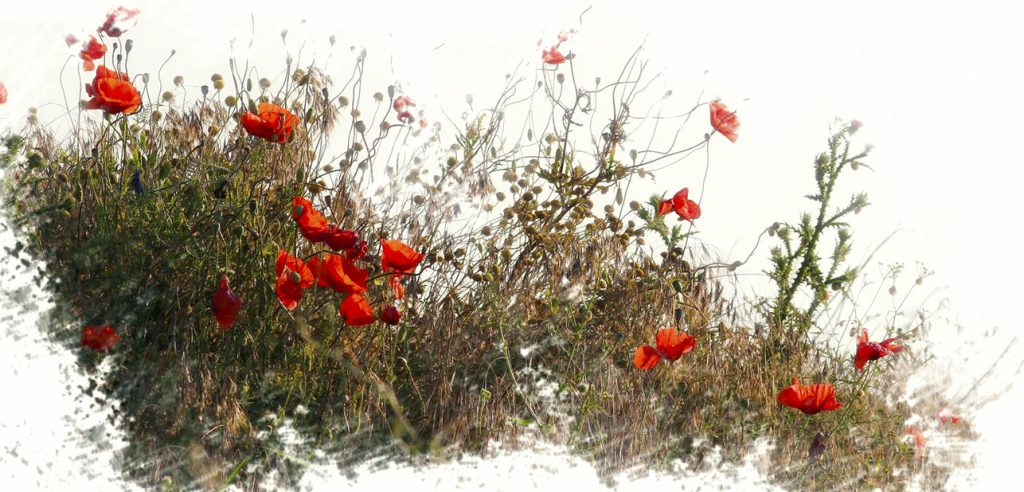“STILL!” AND “CARRY ON”
11 Nov 2019
We have built a house that is not for Time’s throwing.
We have gained a peace unshaken by pain for ever.
War knows no power. Safe shall be my going,
Secretly armed against all death’s endeavour;
Safe though all safety’s lost; safe where men fall;
And if these poor limbs die, safest of all.
RUPERT BROOKE, “Safety”, 1914
I wake in the darkness of another morning to the long, distant, drawn-out hooting of a tawny owl. We’ve always had owls here, and I hear them hunting on summer nights, and the sharp kwik-kwik of the females under winter stars. This owl is patrolling what he considers to be his, and proclaiming his territorial rights. Not only humans are prepared to attack or defend what they have claimed for their own.
No light, only a gradual lessening of darkness, day without definition. And stillness. No noise, no intrusions yet from the world.
This is Remembrance Day, and Canadians will pause at the eleventh hour of this eleventh day of the eleventh month of the year, as we have done for a hundred years, and observe the silence.
When Douglas was a child, Armistice Day in Britain was a day of gravity and mourning, when the unspeakable ‘war to end all wars’ was still raw in the nation’s memory, and traffic stopped and bus drivers stood in the streets with bowed, uncovered heads, and on the pavements children were hushed, and men and women stood in silence as the strokes of eleven o’clock died away.
And they remembered.
Here, at our house on November 11th, the White Ensign and the Maple Leaf would always hang from an upstairs window, and just before 11 a.m. Douglas would take one of his Victorian bosun’s pipes from his desk drawer, and we would open the front door. And at the last chime from our longcase clock in the entrance hall and, sometimes simultaneously, the sound of the signal gun from the Royal British Legion in the village, he would sound the Still.
Sometimes we stood in complete silence, undisturbed, leaves falling soundlessly from the oaks; sometimes there was noise from some distant leafblower, or builders, or passing vehicles. But in his mind and mine the silence was absolute, and in that silence he, whose life was lived in remembrance, thought of his brothers, his friends, his shipmates, his schoolmates: thought of burning ships and dying men, air raids and searchlights and falling bombs and aircraft, spiralling down, he told me once, like leaves into the sea. I remembered my childhood, my parents’ memories of their older brothers, William Jordan of the Royal Regiment of Canada, missing, presumed killed at Dieppe in August, 1942, and Stanley Hamilton Stevens, Queen’s Own Rifles of Canada, killed by a shard of shrapnel in the temple near Caen in July of 1944.
And then the signal gun from the village would echo, and Douglas would raise the call to his lips again and sound the Carry On, and life would resume.
He would go to his study and fill one of his favourite pipes and smoke for a while, never able to dismiss the ghosts easily, never quite without bitterness. He used to say to me sometimes, “And for what?” and I would say, “For me. For us. For my freedom.”
For this fragile, vulnerable peace. For these unthreatening skies, for this birdsong in stillness.
For you. For us. For this.
Remember.

